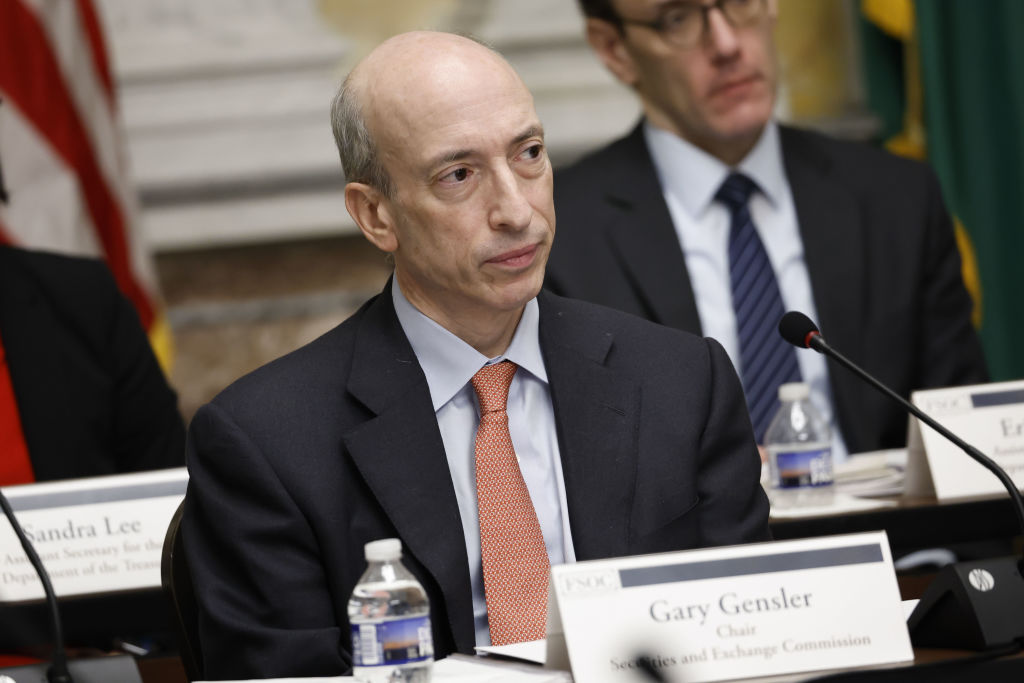Yesterday, the US Securities and Exchange Commission (SEC) informed the crypto firm Paxos Trust Co., that it plans to launch a lawsuit against the company for violating investor protection laws. Paxos is the company tasked with issuing and maintaining the operations of Binance’s US Dollar-pegged stablecoin, BUSD.
Hours before the Wall Street Journal first surfaced news of the impending lawsuit, the New York Department of Financial Services (NYDFS) ordered Paxos to stop creating more of the BUSD token. Paxos is still permitted to process redemptions. Paxos first entered into a partnership with Binance, the world’s largest crypto exchange in 2019.
According to the anonymous source who spoke with the Wall Street Journal, the SEC’s lawsuit alleges that BUSD is an “unregistered security”. The regulator has since issued a letter to Paxos known as a ‘Wells notice’, which the agency typically uses when alerting an organisation of an impending enforcement action.
At the time of writing, Binance’s BUSD token is the third-largest stablecoin in the world and commands a total overall value of US$15.8 billion.

Why is the SEC suing Paxos?
The main crux of the SEC’s case against Paxos rests on it’s pursuit of Binance’s ‘BUSD’ stablecoin as a type of security — something that many crypto investors vehemently disagree with. Currently details surrounding the broader scope of the lawsuit remain hazy, as as does the additional investigation into the firm, which is being spearheaded by the NYDFS.
As we’ll soon learn, there’s a good deal of debate around what defines a ‘security’, although the standard definition typically describes one as: an interchangeable financial instrument that holds some type of monetary value’. A security typically represents ownership in a corporation or organisation in the form of stock, bond or similar financial instrument.
Many crypto investors have taken issue with the SEC’s allegation that Binance’s US-Dollar stablecoin — a specific type of cryptocurrency that tethers its value directly to the USD — could be reasonably construed as a security, arguing that because it doesn’t generate profit or any form of yield for investors, it should stand outside of such a designation.
Is Binance’s BUSD token really a security?
The most common rebuke against the SEC designating BUSD as a security is that it doesn’t pass what’s known as the ‘Howey Test’. This test claims that an asset cannot be deemed a security if it doesn’t illicit “the expectation of profit” from its holders, something that Australian crypto personality Miles Deutscher pointed out to his 287,000 followers on Twitter.
However, the grim reality of securities regulation, is that it’s unsurprisingly far more complex and tedious than meets the eye. This is potentially why there’s an entire arm of legal scholars that dedicate their careers to dealing with the law-making that surrounds these financial instruments.
The fact that an asset lacks the expectation of profit does not automatically absolve it from being designated a security by legislators.
This is a something that SEC Chair Gary Gensler has pointed out repeatedly, having previously made the following statement during a speech to the American Bar Association Derivatives and Futures Law Committee in July, 2021.
Make no mistake: It doesn’t matter whether it’s a stock token, a stable value token backed by securities, or any other virtual product that provides synthetic exposure to underlying securities. These platforms — whether in the decentralized or centralized finance space — are implicated by the securities laws and must work within our securities regime.
Gary Gensler, SEC Chair.

While not directly agreeing with Gensler directly, Cinneamhain Ventures (CEHV) partner Adam Cochran posted the following Twitter thread which pointed out the many complexities that come along with this domain of financial legislation.
Additionally, Cochran addressed the limited scope of the widely-discussed ‘Howey Test’ and discussed the various grounds upon which the SEC can justifiably sue companies on in regards to issuing securities.
Additionally Cochran explained that stablecoins bear a striking resemblance to a ‘money market fund’, which is a type of mutual fund that invests in liquid, short-term instruments like cash and Treasuries for profit.
“The fact that these assets hold underlying treasuries, makes them a lot like a money market fund, exposing holders to a security, even if they don’t earn from it. Making an argument (not one I agree with, but a reasonable enough one) that they can be a security.”
Adam Cochran, Partner at CEHV.
“The SEC, believe it or not, has knowledgeable securities counsel,” Cochran added.
Due to the incredibly intricate nature of this domain of financial regulation, it remains to be seen whether or not the SEC will be able to legally declare that Binance’s BUSD token is in fact, a security. No date for the subsequent legal proceedings has been set.
The SEC’s renewed crypto crackdown
The SEC’s pursuit of Binance by way of Paxos comes amidst a broader, renewed crackdown on the crypto industry. Last Friday, the SEC reached a $30 million settlement with the US-based crypto exchange Kraken. As part of the settlement, Kraken agreed to shut down all of its ‘staking as a service’ products — something that SEC also claimed was a type of unregistered security.
You can read the full breakdown of the SEC’s war on staking here.
The main crux of the settlement is that the SEC considers Kraken’s staking services to be something that looks, smells and feels a lot like a ‘security’. If Kraken’s staking services are to be designated as such, it would impose a host of new regulatory requirements that many crypto players are simply unprepared for.
The SEC’s settlement with Kraken also confirmed broader fears — which first were introduced by Brian Armstrong on Wednesday last week — amongst crypto market participants that the agency may start looking to more heavily regulate the practice of crypto staking altogether.





